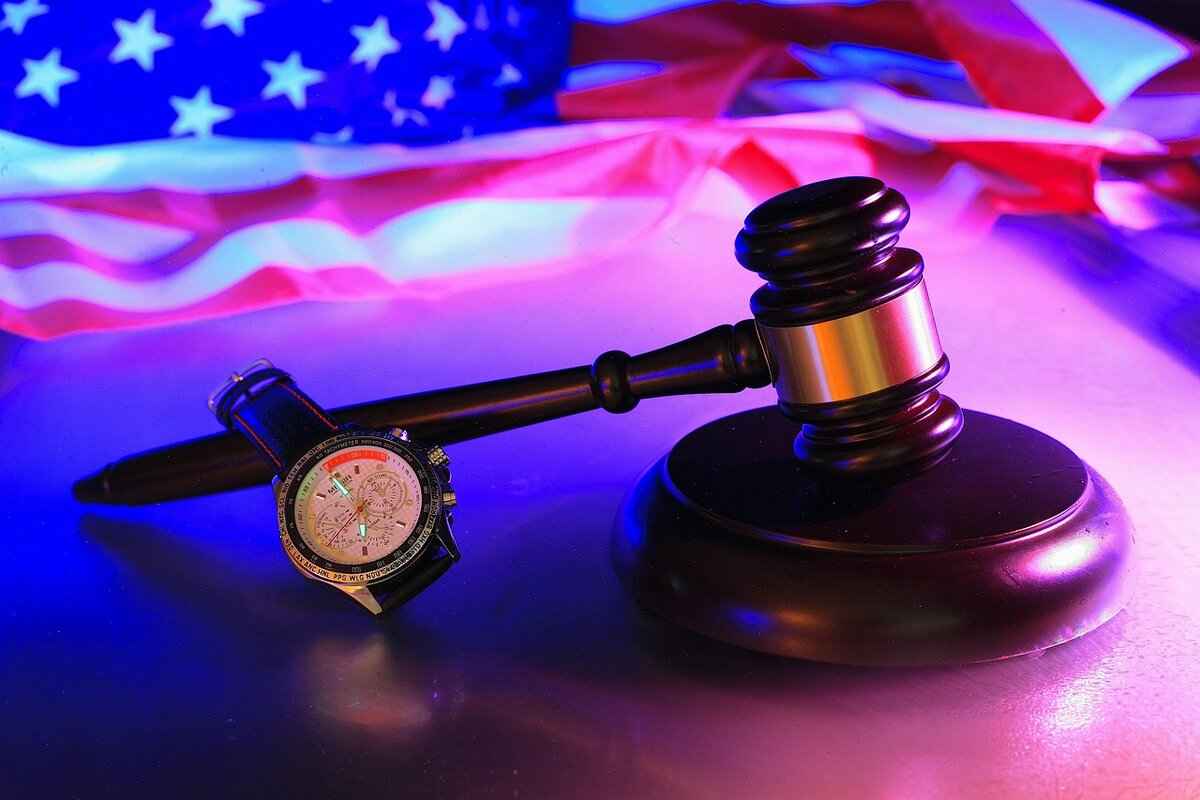This article delves into the options available to individuals facing an unfavorable court judgment, including appeals, motions for reconsideration, and other legal remedies. Understanding your rights and the avenues for recourse can empower you to take appropriate action.
Understanding Unfair Judgments
To effectively address an unfair judgment, it’s crucial to grasp what constitutes an unfair ruling in the legal system. An unfair judgment can arise from various factors, including legal errors, procedural missteps, or a lack of evidence. Recognizing these grounds is the first step in challenging an unfavorable ruling.
Grounds for Appeal
Identifying valid grounds for an appeal is essential. Common reasons to contest a court’s decision include:
- Legal Errors: Occur when a judge misapplies the law or procedures during a trial.
- Procedural Errors: Involve mistakes in the legal process that can affect the outcome of a case.
- Substantive Errors: Relate to the application of the law to the facts of the case.
- Lack of Evidence: A judgment may be deemed unfair if it lacks sufficient proof.
Filing an Appeal
The appeal process can be complex. Here are the critical steps necessary to file an appeal:
- Preparing the Notice of Appeal: This document initiates the appellate process. Understanding its requirements is vital for a successful appeal.
- Gathering the Record on Appeal: Assembling the trial record, including transcripts and evidence, is essential for your appeal.
Motions for Reconsideration
In some cases, filing a motion for reconsideration may be an alternative to an appeal. This motion requests the court to review its decision based on specific grounds. It’s important to understand:
- Timing and Requirements: Knowing the deadlines and procedural requirements for filing a motion is crucial to ensure acceptance by the court.
- Arguments for Reconsideration: Arguments may include new evidence or changes in the law that could affect the original ruling.
Seeking Legal Counsel
Consulting with an experienced attorney can significantly impact the outcome of your case. Legal representation is crucial when challenging a judgment. Here are some considerations:
- Choosing the Right Attorney: Select an attorney with expertise in appeals and post-judgment motions to enhance your chances of success.
- Costs and Considerations: Understanding potential costs involved in pursuing an appeal or motion for reconsideration is essential for budgeting.
In summary, facing an unfair court judgment can be daunting, but knowing your options empowers you to take action. Whether you choose to appeal or file a motion for reconsideration, seeking knowledgeable legal counsel is vital in navigating the complexities of the judicial system.

Understanding Unfair Judgments
Understanding the intricacies of unfair judgments is essential for anyone navigating the legal system. An unfair judgment can significantly impact an individual’s life, and recognizing its characteristics is the first step toward addressing it effectively. This section delves into what constitutes an unfair ruling and the various grounds on which one can challenge such decisions.
An unfair judgment typically arises from a misinterpretation of the law or a failure to consider crucial evidence. It is essential to differentiate between a judgment that one simply disagrees with and one that is fundamentally unjust. Factors contributing to an unfair ruling may include:
- Bias or Prejudice: If a judge displays bias, whether intentional or not, it can lead to unfair outcomes.
- Inadequate Representation: A lack of effective legal counsel can result in a failure to present a strong case.
- Misapplication of Law: Errors in applying legal principles can result in unjust decisions.
- Insufficient Evidence: A judgment based on scant or irrelevant evidence can be challenged as unfair.
To effectively challenge an unfair judgment, one must first identify the specific grounds for appeal. Common grounds include:
- Legal Errors: These occur when the judge misinterprets the law, which can provide a basis for appeal.
- Procedural Errors: Mistakes in the legal process that could have affected the outcome.
- Substantive Errors: Errors in applying the law to the facts of the case can significantly impact fairness.
- Lack of Evidence: If a ruling lacks sufficient evidence, it may be deemed unfair.
Understanding the grounds for appeal is crucial, as it allows individuals to build a solid case for reconsideration. For example, if a judge failed to consider critical evidence that could have influenced the outcome, this could be a valid reason to challenge the ruling.
Moreover, the process of filing an appeal can be intricate. It requires careful preparation, including:
- Notice of Appeal: This document must be filed within a specific timeframe and outlines the intention to contest the judgment.
- Record on Appeal: Gathering all relevant documents, transcripts, and evidence presented during the original trial is essential for the appeal.
In some cases, individuals may opt for a motion for reconsideration instead of an appeal. This motion allows parties to request the court to review its decision based on new evidence or changes in the law. Understanding the timing and procedural requirements for such motions is vital for success.
Ultimately, seeking legal counsel is paramount when dealing with unfair judgments. An experienced attorney can provide invaluable guidance, helping individuals navigate the complexities of the legal system. Choosing the right attorney, particularly one with expertise in appeals and post-judgment motions, can significantly enhance the chances of a favorable outcome.
Understanding the costs associated with pursuing an appeal or motion for reconsideration is also essential. Legal fees can vary, and it is crucial to budget accordingly to ensure that financial constraints do not hinder the pursuit of justice.
In summary, recognizing what constitutes an unfair judgment and understanding the avenues available for challenging such rulings is vital for anyone facing legal adversity. By identifying valid grounds for appeal, preparing thoroughly, and seeking appropriate legal counsel, individuals can take significant steps toward rectifying an unfair ruling.

Grounds for Appeal
Identifying valid grounds for an appeal is essential in the legal process. An appeal provides a mechanism for individuals to challenge a court’s decision when they believe that the ruling was unjust or based on flawed reasoning. This section outlines common reasons individuals can use to contest a court’s decision, such as legal errors and lack of evidence.
- Legal Errors: Legal errors arise when the judge misapplies the law or fails to follow the correct legal procedures. These errors can significantly impact the outcome of a case and provide a solid basis for an appeal. Common examples include:
- Misinterpretation of Law: When a judge interprets a statute or legal principle incorrectly, it can lead to an unjust ruling.
- Improper Admission or Exclusion of Evidence: If a judge allows inadmissible evidence to influence the jury or excludes critical evidence, it can undermine the fairness of the trial.
- Procedural Errors: Procedural errors involve mistakes made during the legal process, which can affect the overall fairness of a trial. Recognizing these errors can strengthen your appeal. Examples include:
- Failure to Provide a Fair Hearing: If a party is not given the opportunity to present their case adequately, it may constitute a procedural error.
- Juror Misconduct: If jurors engage in improper communications or fail to follow instructions, it can invalidate the verdict.
- Lack of Evidence: A judgment may be deemed unfair if it lacks sufficient evidence to support the ruling. Challenging decisions based on inadequate proof is a common ground for appeal. Consider the following:
- Insufficient Evidence to Support Findings: If the evidence presented at trial does not logically support the judge’s or jury’s conclusions, this can be a basis for appeal.
- New Evidence: If new evidence emerges that could significantly impact the case’s outcome, it may justify an appeal.
- Substantive Errors: These errors relate to how the law is applied to the facts of the case. If the judge’s application of the law is fundamentally flawed, it can lead to an unfair judgment. Examples include:
- Incorrect Application of Legal Standards: If the judge applies the wrong legal standard to the facts, it can lead to an erroneous decision.
- Bias or Prejudice: If there is evidence that the judge was biased or prejudiced against one party, this can also be grounds for appeal.
Understanding these grounds for appeal is crucial for anyone considering challenging a court’s decision. It is advisable to consult with a legal professional who can provide guidance tailored to your specific situation and help navigate the complexities of the appeals process.
Legal Errors
Legal errors represent a critical aspect of judicial proceedings, occurring when a judge incorrectly applies the law or misinterprets legal procedures during a trial. These errors can significantly impact the fairness of a judgment and may provide grounds for an appeal. Understanding the nature of these errors is essential for individuals seeking to challenge an unfavorable court ruling.
Legal errors can be categorized into two main types: procedural errors and substantive errors.
- Procedural Errors: These errors arise when the legal process is not followed correctly. For instance, if a judge fails to allow a party to present crucial evidence or does not adhere to the rules of evidence, this can lead to a procedural error. Such mistakes can undermine the integrity of the trial and may warrant an appeal.
- Substantive Errors: These errors occur when the judge misapplies the law to the facts of the case. For example, if a judge incorrectly interprets a statute or fails to consider relevant case law, it can lead to an unjust ruling. Substantive errors often have a more direct impact on the outcome of a case, making them critical grounds for appeal.
In addition to these categories, it is essential to distinguish between harmless errors and those that are prejudicial. A harmless error may not affect the outcome of the case, while a prejudicial error can significantly alter the trial’s result. Courts typically focus on whether the error had a substantial impact on the verdict when determining if an appeal is justified.
Recognizing legal errors is vital for individuals who believe they have received an unfair judgment. To successfully appeal a decision based on legal errors, one must demonstrate that the error affected the outcome of the case. This requires a thorough understanding of the trial record and the specific legal principles involved.
When preparing for an appeal, it is crucial to gather all relevant documents, including trial transcripts and evidence presented during the original trial. This comprehensive review will help identify specific legal errors that may have occurred. Additionally, consulting with an experienced attorney can provide valuable insights into the appeal process and help formulate a strong argument based on identified errors.
In summary, understanding legal errors is a vital step for anyone facing an unfavorable court judgment. By identifying procedural and substantive errors, individuals can build a solid foundation for their appeal. Engaging legal counsel can further enhance the chances of success, ensuring that all aspects of the case are thoroughly examined and presented effectively in court.
Procedural Errors
are significant missteps in the legal process that can profoundly impact the outcome of a case. These errors may occur at various stages of litigation, from pre-trial motions to the trial itself, and even during post-trial procedures. Understanding these errors is crucial for anyone involved in a legal dispute, as recognizing them can bolster the chances of a successful appeal.
One common type of procedural error is failure to follow proper legal procedures. For example, if a judge does not allow a party to present crucial evidence or improperly excludes testimony, it may violate the rights of that party to a fair trial. Such omissions can be grounds for an appeal, as they can skew the trial’s outcome.
Another aspect to consider is jurisdictional errors. These occur when a court lacks the authority to hear a case or make a ruling. If a court issues a judgment without proper jurisdiction, that judgment can be contested. This aspect is vital, as it questions the very foundation of the court’s authority in the matter at hand.
Additionally, misapplication of legal standards can lead to procedural errors. For instance, if a judge applies the wrong standard of proof or misinterprets legal statutes, the resulting judgment may be unfair. This type of error can often be identified through a careful review of the trial transcript and evidence presented.
To effectively challenge procedural errors, it is essential to gather comprehensive documentation. This includes trial transcripts, evidence submissions, and any other relevant legal documents. A thorough review of these materials can unveil discrepancies that may have affected the trial’s fairness.
Moreover, understanding the timeline for filing an appeal is crucial. Typically, there are strict deadlines within which a party must file a notice of appeal after a judgment is rendered. Missing these deadlines can forfeit the right to challenge the decision, making timely action critical.
In the context of procedural errors, it is also important to note the impact of attorney performance. If a party’s attorney fails to recognize or address procedural errors during the trial, this may constitute ineffective assistance of counsel, which can be another ground for appeal. Therefore, selecting a competent attorney who is well-versed in procedural nuances is paramount.
To further illustrate the significance of procedural errors, consider the following examples:
- Example 1: A judge dismisses a case without allowing the defendant to present their defense, leading to an unfair trial.
- Example 2: Evidence that could exonerate a defendant is not admitted due to a procedural oversight.
- Example 3: A court issues a ruling based on an incorrect interpretation of law, affecting the judgment’s validity.
In summary, recognizing and understanding procedural errors is essential for anyone facing an unfavorable judgment. These errors can serve as a foundation for a successful appeal, allowing individuals to challenge unjust rulings. By being vigilant and proactive, parties can safeguard their rights and ensure a fair legal process.
Substantive Errors
are critical issues in legal proceedings that can arise when the law is incorrectly applied to the facts of a case. These errors can have profound implications on the outcome of a trial, potentially resulting in an unjust judgment. Understanding substantive errors is essential for individuals seeking to challenge a court’s decision, as they directly impact the fairness and integrity of the legal process.
Substantive errors occur when a judge misinterprets or misapplies legal principles to the facts presented during a trial. For instance, if a judge fails to consider relevant laws or applies an incorrect legal standard, the resulting judgment may not only be unfair but may also violate the rights of the parties involved. This kind of error can stem from various factors, including inadequate legal reasoning, a misunderstanding of the evidence, or a failure to apply statutory requirements correctly.
One of the most significant aspects of substantive errors is their potential to undermine public confidence in the judicial system. When individuals believe that judgments are based on incorrect applications of the law, it can lead to a perception of bias or injustice. This is particularly concerning in cases involving substantial penalties, custody disputes, or criminal convictions, where the stakes are high, and the repercussions of an erroneous judgment can be life-altering.
To effectively challenge a judgment based on substantive errors, it is crucial to identify specific instances where the law was misapplied. This may involve examining the judge’s reasoning and the legal standards applied in the case. For example, if a judge incorrectly categorizes a legal standard, such as the burden of proof, it can lead to an unjust ruling. Furthermore, parties challenging a judgment should gather supporting evidence that demonstrates how the substantive error affected the outcome of the case.
Individuals facing unfavorable judgments due to substantive errors have several options for recourse. One primary avenue is to file an appeal, where the appellate court reviews the case for legal errors, including substantive issues. During the appeal, the appellant must clearly articulate how the substantive error impacted the trial’s outcome, often requiring a detailed legal brief that outlines the specific misapplications of law.
Additionally, a motion for reconsideration can be filed in some jurisdictions, which allows for a review of the judgment based on the argument that the court made a substantive error. This motion must be filed within a specific timeframe and typically requires new evidence or a clear demonstration of how the original ruling was flawed.
It is essential to consult with an experienced attorney when navigating cases involving substantive errors. Legal professionals can provide invaluable insights into the complexities of the law and help individuals understand their rights and options. Moreover, attorneys can assist in preparing the necessary documentation for appeals or motions, ensuring that all procedural requirements are met.
In conclusion, recognizing and addressing substantive errors is vital for ensuring justice in the legal system. By understanding the implications of these errors and the available remedies, individuals can take proactive steps to challenge unfair judgments and seek the relief they deserve.
Lack of Evidence
A judgment may be deemed unfair if it lacks sufficient evidence. In the legal landscape, evidence serves as the cornerstone of any case, and without it, the foundation of a judgment becomes shaky. This section delves into the intricacies of how to effectively challenge decisions based on inadequate proof, ensuring that your rights are upheld.
When a court renders a decision, it is expected to be supported by credible and substantial evidence. If you believe that a ruling was made without adequate proof, it is essential to understand the steps you can take to contest this judgment. Here are some key strategies:
- Review the Trial Record: The first step in challenging a judgment based on lack of evidence is to meticulously review the trial record. This includes examining transcripts of witness testimonies, evidence presented, and any exhibits that were part of the original trial.
- Identify Gaps in Evidence: Determine if there were significant gaps or omissions in the evidence that could have influenced the court’s decision. For instance, if critical witnesses were not called to testify or if vital documents were excluded, these could serve as grounds for appeal.
- Consult with Legal Experts: Engaging with an experienced attorney who specializes in appeals can provide invaluable insights. They can help assess whether the lack of evidence was substantial enough to warrant an appeal and guide you through the process.
- File a Motion for Reconsideration: In some cases, you may opt to file a motion for reconsideration, arguing that the judgment should be revisited due to inadequate evidence. This motion must clearly outline the reasons for reconsideration and any new evidence that may have come to light.
Understanding the legal standards for evidence is also crucial. In civil cases, the burden of proof typically lies with the plaintiff, who must establish their case by a preponderance of the evidence. Conversely, in criminal cases, the prosecution must prove the defendant’s guilt beyond a reasonable doubt. If you believe that this standard was not met, it strengthens your argument for an appeal.
Furthermore, it is essential to recognize that the type of evidence presented can significantly impact the outcome of a case. For example, hearsay evidence is often inadmissible, and relying on such evidence can undermine a judgment. If you suspect that hearsay or unreliable testimony influenced the court’s decision, it is vital to highlight these issues in your appeal.
Additionally, procedural errors during the trial can also affect the admissibility of evidence. If you believe that the court improperly excluded critical evidence or allowed irrelevant information, these procedural missteps may provide grounds for challenging the judgment.
Lastly, keep in mind that time is of the essence when contesting a judgment. There are strict deadlines for filing an appeal or a motion for reconsideration, and failing to act promptly can result in the loss of your right to challenge the ruling. Therefore, it is advisable to initiate the process as soon as possible after receiving an unfavorable judgment.
In summary, challenging a judgment based on a lack of evidence involves a comprehensive understanding of the trial record, identifying gaps in the evidence, and navigating the legal procedures effectively. By taking these steps and seeking professional legal assistance, you can enhance your chances of overturning an unfair judgment.

Filing an Appeal
When faced with an unfavorable judgment, understanding the appeal process is crucial for seeking justice. This section provides a comprehensive guide to filing an appeal, highlighting the necessary steps and considerations involved.
The first step in the appeal process is to recognize that it can be quite complex. Many individuals may feel overwhelmed by the legal terminology and procedural requirements. However, with a clear understanding of the steps involved, you can navigate the process more effectively.
- Step 1: Preparing the Notice of Appeal
The notice of appeal is the document that formally initiates your appeal. It must be filed within a specific timeframe, typically 30 days from the date of the judgment. Ensure that your notice includes:
- Your name and contact information
- The name of the court where the original case was heard
- A clear statement indicating that you are appealing the judgment
- The specific ruling you are contesting
- Step 2: Gathering the Record on Appeal
Assembling the trial record is essential for your appeal. This record includes:
- Transcripts of the trial proceedings
- All exhibits and evidence presented in the original case
- Any motions or pleadings filed during the trial
It’s important to ensure that the record is complete and accurate, as it will serve as the basis for your arguments in the appellate court.
- Step 3: Drafting the Appellate Brief
The appellate brief is a critical document where you present your arguments for why the lower court’s decision should be overturned. This document should include:
- An introduction outlining the case and the issues on appeal
- A statement of facts summarizing the relevant details of the case
- Your legal arguments, supported by citations to relevant laws and precedents
- A conclusion summarizing your request for relief
- Step 4: Oral Argument
In some cases, the appellate court may schedule an oral argument. This is an opportunity for you (or your attorney) to present your case in person and answer questions from the judges. Preparing for this step is crucial, as it allows you to clarify your arguments and address any concerns the court may have.
- Step 5: Awaiting the Decision
After submitting your brief and participating in oral arguments, you will need to wait for the court’s decision. This process can take several months, and the court will issue a written opinion outlining its ruling. Depending on the outcome, you may have further options, such as seeking a rehearing or appealing to a higher court.
Throughout the appeal process, it is advisable to consult with an experienced attorney who specializes in appellate law. They can provide valuable insights and guidance, helping to ensure that your appeal is as strong as possible. Remember, the appeal process is not just about challenging a decision; it is about seeking justice and ensuring that your rights are protected.
Preparing the Notice of Appeal
is a fundamental step in the appellate process, as it formally initiates the appeal and sets the stage for challenging a court’s decision. Understanding the requirements and procedures for filing this document is essential for a successful appeal.
When you receive an unfavorable judgment, the first action you should consider is filing a notice of appeal. This document must be filed within a specific timeframe, typically within 30 days of the judgment, although this can vary by jurisdiction. It is crucial to check the local rules of the court to ensure compliance with the deadlines.
The notice of appeal should include several key components:
- Caption: This section identifies the court, the parties involved, and the case number.
- Statement of the Appeal: Clearly state your intention to appeal the judgment.
- Grounds for Appeal: Outline the specific reasons for the appeal. This could include legal errors made during the trial, lack of sufficient evidence, or procedural mistakes.
- Signature: The notice must be signed by the appellant or their attorney.
It is advisable to consult with an attorney when preparing the notice of appeal. An experienced attorney can help ensure that the document is correctly formatted and that all necessary information is included. This can prevent delays and potential dismissals based on technicalities.
In addition to the notice of appeal, you may also need to file a case information statement or other accompanying documents, depending on the jurisdiction. These documents provide the appellate court with essential information about the case and the issues being raised on appeal.
Another critical aspect of the appeal process is the record on appeal. This includes all the documents, evidence, and transcripts from the original trial. Gathering this information is vital, as it forms the basis of your arguments in the appellate court. Ensure that you request the complete trial record promptly, as delays can hinder your appeal.
Furthermore, it is important to adhere to the formatting and filing requirements set forth by the appellate court. This may include specific rules regarding the length of the notice, font size, and margins. Failing to comply with these rules can result in your appeal being rejected.
Once the notice of appeal is filed, the appellate court will review the case based on the record provided. The court may schedule oral arguments, where both parties can present their case. It is essential to prepare thoroughly for this stage, as it provides an opportunity to clarify your arguments and address any questions the judges may have.
In summary, preparing the notice of appeal is a critical step in challenging an unfavorable court judgment. Understanding its requirements and ensuring proper filing can significantly impact the outcome of your appeal. Always consider seeking legal counsel to navigate this complex process effectively.
Gathering the Record on Appeal
is a critical step in the appellate process, as it lays the foundation for your case. The record essentially includes all documents, transcripts, and evidence presented during the original trial. Assembling this record accurately and comprehensively is essential for a successful appeal.
To begin with, it is important to understand that the record on appeal serves as the primary source of information for the appellate court. This court does not conduct a new trial; instead, it reviews the existing record to determine whether the trial court made any errors that warrant a reversal or modification of the judgment. Therefore, ensuring that the record is complete and correct is paramount.
Key Components of the Trial Record
- Transcripts: The verbatim record of everything said during the trial, including witness testimonies and the judge’s rulings. Obtaining accurate transcripts is crucial, as they provide the appellate court with the context of the trial proceedings.
- Evidence: This includes physical evidence, documents, and exhibits that were presented during the trial. It is essential to include all relevant evidence that supports your argument for appeal.
- Documents: Any motions, pleadings, and orders filed in the case should be included. These documents help the appellate court understand the procedural history and the legal arguments made in the original trial.
When gathering the record, it is advisable to work closely with your attorney. They can help ensure that nothing is overlooked and that the record is organized in a manner that highlights the most compelling arguments for your appeal. Additionally, your attorney can assist in identifying any potential gaps in the record that may need to be addressed.
Ensuring Completeness and Accuracy
It is vital to verify that the record is both complete and accurate. Any missing documents or incorrect transcripts can undermine your appeal and may even result in dismissal. Therefore, double-checking the record and consulting with your attorney about any discrepancies is crucial.
Furthermore, it is essential to understand the deadlines associated with submitting the record on appeal. Each jurisdiction has specific rules regarding the time frame within which the record must be filed. Failing to meet these deadlines can jeopardize your appeal.
Potential Challenges
As you gather the record, be prepared for potential challenges. For instance, if a transcript is unavailable or if evidence was not properly preserved, you may need to seek alternatives, such as affidavits from witnesses or other forms of documentation that can support your case.
Additionally, if you believe that the trial court made significant errors in admitting or excluding evidence, you may need to provide a detailed explanation of how these errors affected the outcome of your trial. This analysis can strengthen your appeal and provide the appellate court with a clearer understanding of the issues at hand.
In conclusion, gathering the record on appeal is a meticulous process that requires attention to detail and a thorough understanding of the legal framework. By ensuring that the record is complete, accurate, and organized effectively, you can enhance your chances of a successful appeal. Always seek guidance from an experienced attorney to navigate this complex process effectively.

Motions for Reconsideration
serve as an important legal tool for individuals seeking to challenge a court’s decision without resorting to a full appeal. This section delves into the intricacies of motions for reconsideration, explaining their purpose, the circumstances under which they can be filed, and the procedural requirements involved.
When a court renders a judgment that a party believes is unjust or based on erroneous conclusions, a motion for reconsideration can be a viable alternative to an appeal. Unlike an appeal, which typically involves a higher court reviewing the case for legal errors, a motion for reconsideration requests the same court to review its own decision. This can be particularly beneficial in instances where new evidence has emerged or if there were significant misinterpretations of the law or facts.
Understanding the Purpose of a Motion for Reconsideration
The primary aim of a motion for reconsideration is to correct errors that may have affected the outcome of the case. This motion allows the court to re-evaluate its decision based on:
- Newly discovered evidence that was not available during the original trial.
- Changes in the law that may impact the ruling.
- Clear errors in the court’s application of the law or factual determinations.
Timing and Procedural Requirements
Filing a motion for reconsideration is subject to strict timelines and procedural rules. Generally, the motion must be filed within a specific period after the judgment, often ranging from 10 to 30 days, depending on the jurisdiction. It is crucial to adhere to these deadlines to avoid dismissal of the motion.
Additionally, the motion must clearly articulate the grounds for reconsideration. This includes providing a detailed explanation of why the court should revisit its decision, supported by relevant evidence or legal arguments. Failure to comply with these requirements can result in the motion being denied.
Arguments for Reconsideration
When preparing a motion for reconsideration, it is essential to present compelling arguments. Common bases for such a motion include:
- New Evidence: Evidence that was not available during the original trial can be grounds for reconsideration. This evidence must be substantial enough to potentially alter the outcome of the case.
- Legal Errors: If the court made a mistake in applying the law or interpreting the facts, this can be a solid basis for the motion. Highlighting specific legal standards that were misapplied can strengthen the argument.
- Changes in the Law: If there have been significant changes in the law that affect the case, this can also warrant reconsideration.
Practical Considerations
Before filing a motion for reconsideration, it is advisable to consult with an experienced attorney. Legal counsel can provide valuable insights into the viability of the motion and help navigate the procedural complexities involved. Additionally, the attorney can assist in drafting the motion to ensure that it meets all legal standards and effectively presents the arguments.
In conclusion, while a motion for reconsideration can be a powerful tool for addressing an unfavorable judgment, it is essential to understand its limitations and procedural requirements. By carefully evaluating the grounds for the motion and seeking professional legal advice, individuals can enhance their chances of achieving a favorable outcome.
Timing and Requirements
When faced with a court’s unfavorable ruling, it is essential to understand the various legal remedies available to you, one of which is filing a motion for reconsideration. This process allows parties to request the court to review and potentially alter its previous decision. However, timing and procedural requirements are critical factors that can determine the success of such a motion.
Understanding the timing and procedural requirements for filing a motion for reconsideration is crucial to ensure your request is accepted by the court. Typically, the timeframe to file this motion varies by jurisdiction, but it generally must be submitted within a specific period after the court’s decision—often within 10 to 30 days.
- Check Local Rules: Each jurisdiction may have unique rules regarding the timeline for filing a motion for reconsideration. Familiarize yourself with local court rules to avoid missing deadlines.
- Document Review: Review the court’s decision carefully to identify any errors or omissions that could justify reconsideration.
- Prepare Supporting Documents: Gather all relevant documents, including the original judgment, transcripts, and any evidence that supports your motion.
In addition to timing, the procedural requirements for filing a motion for reconsideration must be strictly adhered to. This typically includes:
- Written Motion: The motion must be in writing and clearly state the grounds for reconsideration. This could include new evidence that was not available during the original proceedings or a demonstration of how the court misapplied the law.
- Notice to Opposing Party: You are generally required to provide notice to the opposing party about your intent to file a motion for reconsideration, giving them an opportunity to respond.
- Filing Fee: Be prepared to pay any associated filing fees as required by the court.
It’s also important to note that a motion for reconsideration is not simply a chance to reargue your case. Instead, it should focus on specific issues that warrant the court’s attention. Courts typically do not favor motions that merely restate previously made arguments or express dissatisfaction with the outcome.
Moreover, some courts may impose additional requirements or limitations on the types of arguments that can be raised in a motion for reconsideration. For example, some jurisdictions only allow reconsideration based on new evidence or changes in the law that could significantly affect the case outcome.
In conclusion, navigating the complexities of filing a motion for reconsideration requires a thorough understanding of both the timing and procedural requirements involved. By adhering to these guidelines, you can enhance your chances of having your motion accepted and potentially overturning an unfavorable judgment.
Arguments for Reconsideration
When faced with an unfavorable court ruling, individuals often seek ways to challenge that decision. One effective method is through a motion for reconsideration. This legal avenue allows parties to request the court to review its prior ruling based on specific grounds. Understanding the types of arguments that can be made in such a motion is crucial for anyone considering this option.
New Evidence is one of the primary arguments for reconsideration. If a party discovers evidence that was not available during the original trial, it can significantly impact the case’s outcome. This new evidence must be compelling and relevant, demonstrating that it could change the judgment if considered. For instance, if new witnesses come forward or if documents that were previously inaccessible are found, these can serve as substantial grounds for a motion.
Another important argument is changes in the law. Legal standards and interpretations can evolve, and if a relevant change occurs after the judgment, it may warrant reconsideration. For example, if a higher court issues a ruling that alters the legal framework applicable to a case, parties may argue that the previous judgment should be reevaluated in light of this new legal precedent.
Additionally, parties may argue procedural errors that occurred during the initial trial. If there were significant mistakes in how the trial was conducted—such as improper admission of evidence or failure to follow legal protocols—these can provide a strong basis for reconsideration. Highlighting these errors shows that the original judgment may not have been rendered fairly.
Moreover, misinterpretation of facts can also be a valid argument for reconsideration. If the court based its decision on a misunderstanding of key facts, presenting a clear and concise explanation of the correct facts can support a motion. This approach often involves providing additional context or clarification that was previously overlooked.
In some cases, a party may also wish to argue that the original judgment was unjust or inequitable. This argument often requires a demonstration of how the ruling affects the parties involved and why it does not align with principles of fairness or justice. While this can be a more subjective argument, it may resonate with the court if presented effectively.
When preparing a motion for reconsideration, it is essential to follow specific procedural requirements. These often include filing within a designated time frame after the judgment and adhering to local court rules. Failing to meet these requirements can result in the motion being dismissed, regardless of the merits of the arguments presented.
Ultimately, the success of a motion for reconsideration depends on the strength of the arguments made and the ability to persuade the court that a reevaluation is warranted. It is advisable to consult with an experienced attorney who can provide guidance tailored to the specifics of the case, ensuring that all relevant arguments are effectively articulated.
In summary, understanding the various arguments that can be made in a motion for reconsideration—such as new evidence, changes in law, procedural errors, misinterpretation of facts, and claims of injustice—is crucial for anyone looking to challenge an unfavorable court decision. By strategically presenting these arguments and adhering to procedural guidelines, individuals can increase their chances of having their case reconsidered.

Seeking Legal Counsel
When navigating the complexities of the legal system, particularly after receiving an unfavorable judgment, the importance of cannot be overstated. An experienced attorney can provide invaluable guidance and representation, significantly impacting the outcome of your case. This section delves into the reasons why having legal representation is crucial when challenging a judgment.
Firstly, an attorney brings a wealth of knowledge and expertise to your case. Understanding the nuances of the law and the specific procedures involved in filing an appeal or a motion for reconsideration requires a level of expertise that most individuals do not possess. An attorney can help you identify the grounds for appeal, ensuring that you are not only aware of your rights but also equipped to advocate for them effectively.
- Legal Strategy: A skilled attorney will develop a tailored legal strategy based on the specifics of your case. This includes assessing the strengths and weaknesses of your situation and determining the best course of action.
- Documentation: Challenging a judgment often requires extensive documentation and precise adherence to procedural rules. An attorney can ensure that all necessary documents are properly filed, which is critical for the success of your appeal.
- Negotiation Skills: Many cases can be resolved outside of court. An experienced attorney can negotiate on your behalf, potentially leading to a more favorable outcome without the need for a lengthy appeal process.
Furthermore, the emotional toll of dealing with a legal dispute can be overwhelming. Having an attorney by your side can provide not only legal support but also emotional reassurance. Knowing that a professional is handling your case allows you to focus on other aspects of your life while your attorney works diligently to protect your interests.
When choosing an attorney, consider their track record in handling appeals and post-judgment motions. Look for someone who specializes in your specific area of concern, as this can make a significant difference in the effectiveness of your representation. Additionally, consider the attorney’s communication style and how comfortable you feel discussing your case with them.
It’s also essential to understand the costs associated with hiring legal counsel. While legal representation can be an investment, it is often worth the expense when considering the potential outcomes of your case. Discussing fees upfront and understanding the billing structure can help you budget accordingly.
In summary, seeking legal counsel is a critical step in challenging an unfair judgment. An experienced attorney not only enhances your chances of a successful outcome but also provides the support and guidance needed during a challenging time. By investing in legal representation, you are taking a proactive step towards protecting your rights and achieving the best possible resolution for your case.
Choosing the Right Attorney
When faced with an unfavorable court judgment, the importance of selecting the right attorney cannot be overstated. An attorney who specializes in appeals and post-judgment motions can significantly enhance your chances of achieving a favorable outcome. This section provides essential tips and insights on how to find the right legal counsel to effectively navigate the complexities of the appeals process.
- Assessing Experience and Expertise: Look for attorneys who have a proven track record in handling appeals and post-judgment motions. Their experience in similar cases is invaluable, as they understand the nuances of appellate law and can identify potential grounds for appeal.
- Evaluating Success Rates: Inquire about the attorney’s success rates in past appeals. A lawyer with a high success rate may have developed effective strategies and a deep understanding of the appellate process.
- Understanding Legal Fees: Legal representation can be costly, so it’s crucial to discuss fees upfront. Some attorneys may offer flexible payment plans or contingency fees, especially if they believe in the merits of your case.
- Communication Style: Choose an attorney who communicates clearly and promptly. You should feel comfortable discussing your case and receiving updates on its progress. A good attorney will take the time to explain complex legal terms and processes.
- Client Testimonials and Reviews: Research online reviews and testimonials from previous clients. This can provide insight into the attorney’s professionalism, responsiveness, and overall client satisfaction.
- Consultation Meetings: Schedule initial consultations with potential attorneys. Many offer free consultations, allowing you to gauge their approach and assess whether they are a good fit for your needs.
Additionally, consider the attorney’s familiarity with the specific court where your case will be heard. Knowledge of local rules and procedures can be a significant advantage. An attorney who has previously practiced in that jurisdiction may have insights that can strengthen your appeal.
It’s also important to ensure that the attorney you choose is a member of relevant legal associations, which can indicate their commitment to staying updated on changes in the law. For example, membership in the American Bar Association or local bar associations can be a good sign of an attorney’s dedication to their practice.
In summary, the process of selecting the right attorney is critical for effectively challenging an unfair court judgment. By considering factors such as experience, communication style, and client feedback, you can make an informed decision that enhances your chances of success in the appeals process. Remember, the right legal counsel can make all the difference in navigating the complexities of the law and advocating for your rights.
Costs and Considerations
When dealing with the aftermath of an unfavorable court judgment, one of the most critical factors to consider is the financial implications of pursuing an appeal or a motion for reconsideration. Understanding these costs can significantly influence your decision-making process and overall strategy.
Legal proceedings can be expensive, and the costs associated with appeals or motions for reconsideration can vary widely based on several factors. Below, we explore the key financial considerations involved in these processes.
| Cost Factors | Description |
|---|---|
| Filing Fees | The initial cost to file an appeal or motion, which can vary by jurisdiction. |
| Attorney Fees | Legal representation is crucial; attorney fees can range from hourly rates to flat fees, depending on the complexity of the case. |
| Transcription Costs | Obtaining transcripts of trial proceedings is often necessary for an appeal, and these can be costly. |
| Research and Preparation | Time spent by attorneys on legal research, drafting documents, and preparing arguments can add to the overall cost. |
| Potential Additional Costs | Costs related to expert witnesses, additional documentation, and other unforeseen expenses may arise. |
To effectively budget for these expenses, it is essential to consider the following:
- Assess Your Financial Situation: Determine how much you can realistically afford to spend on legal services without compromising your financial stability.
- Consult with Your Attorney: Discuss potential costs upfront with your attorney to get a clearer picture of what to expect during the appeal or reconsideration process.
- Explore Payment Plans: Some attorneys may offer flexible payment options, making it easier to manage costs over time.
- Consider Pro Bono Services: If financial constraints are significant, explore whether you qualify for pro bono legal assistance.
In addition to direct costs, it’s also important to consider the opportunity costs associated with pursuing an appeal. This includes the time and energy spent on legal proceedings that could be directed towards personal or professional pursuits. Weighing these factors can help you make a more informed decision about whether to move forward with an appeal or reconsideration.
Ultimately, understanding the full scope of financial considerations involved in appealing a court judgment or filing a motion for reconsideration is vital. By taking the time to assess these costs, you can better prepare yourself for the journey ahead and make choices that align with your financial and legal goals.
Frequently Asked Questions
- What should I do if I receive an unfair court judgment?
If you believe a court has rendered an unfair judgment, your first step is to understand your options. You can consider filing an appeal, a motion for reconsideration, or exploring other legal remedies. Consulting with an experienced attorney can help clarify your best course of action.
- How do I know if I have valid grounds for an appeal?
Valid grounds for an appeal often include legal errors, procedural mistakes, or lack of evidence that significantly impacted the judgment. An attorney can help you analyze the specifics of your case to determine if you have a strong basis for an appeal.
- What is a motion for reconsideration?
A motion for reconsideration is a request to the court to review its decision based on new evidence or changes in the law. This option can sometimes be quicker than an appeal and may be appropriate depending on your situation.
- How long do I have to file an appeal?
The time frame for filing an appeal varies by jurisdiction, but it’s typically within a few weeks after the judgment. It’s crucial to adhere to these deadlines, as missing them could forfeit your right to appeal.
- What are the costs involved in filing an appeal?
Costs can vary significantly depending on the complexity of the case, attorney fees, and court filing fees. It’s essential to discuss these financial considerations with your attorney to budget accordingly.















